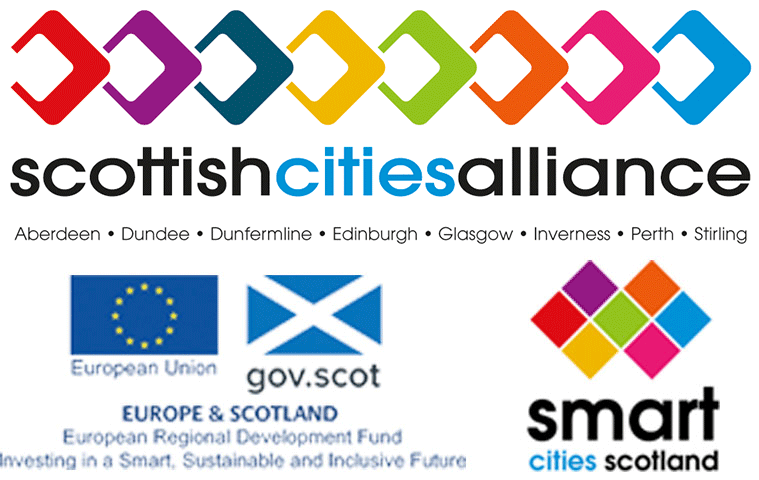We hear so much about “Smart Cities” these days but what is a Smart City, why is it so important for cities and what will they do for the average citizen?
A Smart City is one which uses information, or data, gathered from technology, to improve its services.
So, for example, the Scottish Cities Alliance’s 8th City Programme, which received £10m in European Regional Development Funding, matched with £14m from the seven cities of Scotland, will aim to improve a range of services using Smart Cities technology.
One of the Smart projects in this programme is Smart Waste. It may not sound exciting – the Smart technologies tend to focus on the mundane yet vital services we need, and sometimes take for granted. But by ironing out inefficiencies we can make a huge difference to costs and environmental aspects of service delivery.
The Alliance plans to transform waste services in Perth, Dundee, Edinburgh, Glasgow and Stirling by working collaboratively. Smart bin technology simply means that sensors put in bins will alert the waste management services only to empty the bin when it is full. This improves efficiency – this efficiency is increased as the sensors can also send an optimum route showing what route to take to empty the full bins. The information – or data – means that wasted journeys and congested areas can be avoided, cutting emissions, cutting costs through efficiency – all using the power of data collected from those tiny sensors.
Earlier this month at the Siemens Digital Cities Forum 2017 at the Crystal in London, the case for the Smart City was put simply: “Growth is essential to cities and good growth equals sustainable development, which is achieved by harnessing Smart technologies and utilising them in the infrastructure.”
Gordon Wright, Future City Strategist at Aberdeen City Council took part in the panel for “A Business Case for Smart Cities”. Aberdeen was one of five cities picked to be part of an 18-month research programme by Siemens to establish the returns available from bringing Smart technology into city infrastructure. Gordon explained that the harbour, which was at the centre of this project, is in a busy, congested part of the city.
This project aimed to show how Smart automation and responsive traffic solutions would be good for business by cutting congestion and making decisions on routes based on real-time information as to the least congested routes. The 18-month study found that an investment of €58million would bring €198million in direct benefits and the original investment would have paid for itself in nine years, easing the congestion of the harbour on the way.
The messages that came time and again were that the data used in Smart technology sits at the centre of advances. It’s the ever smarter way that data will be used in the future that will transform our cities and make our lives leaner and greener.
The business case for Smart Cities was made. This new digital manufacturing revolution will bring benefits to all as the world of digital transforms the way we manage our cities.
Juergen Maier, CEO of Siemens UK told the audience in his closing speech: “We must create the innovation hubs and we will have to redesign the cities around that. We have to look for a way we can manage that and design our cities in a much more digitally enabled way.”

 X
X Linkedin
Linkedin